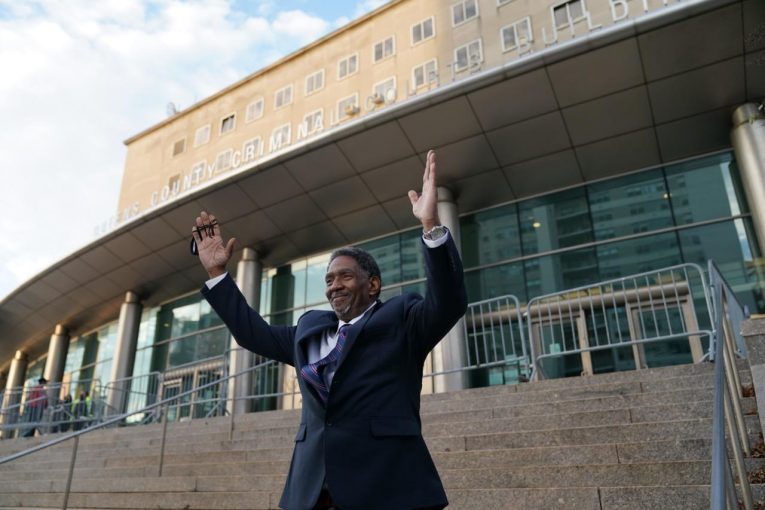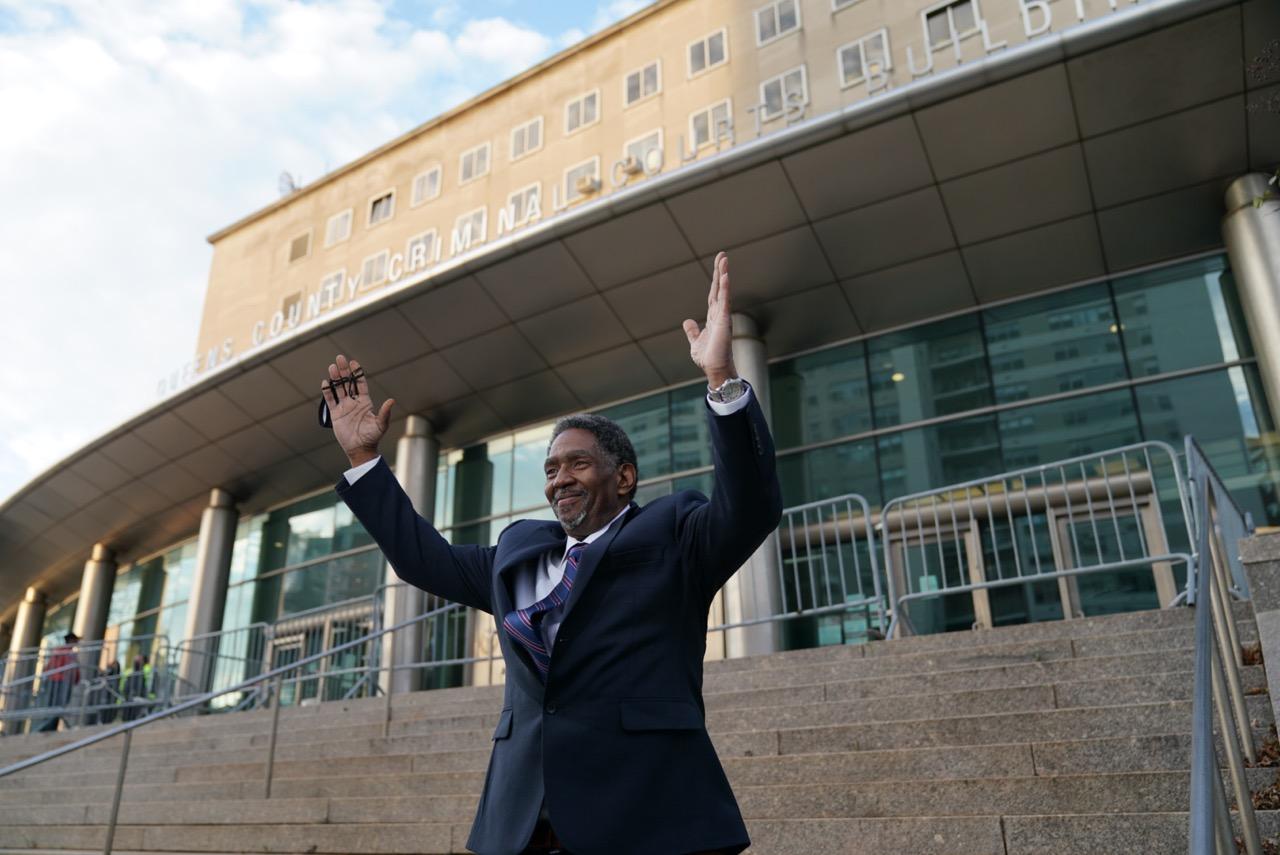

By Ruby Chavez
QUEENS, NY- Jaythan Kendrick has spent 25 years, a quarter century, in prison trying to prove his innocence.
But Thursday, November 19, 2020, Judge Joseph Zayas brought Kendrick’s fight to an end, vacating his conviction. Kendrick walked out of Queens County Supreme Court in NYC as a free man after 25 years.
Kendrick said, “I’m very, very happy today because I never thought this would happen, although I hope and wish that it would.”
Kendrick had been trying to prove his innocence and served a 25 year sentence in the process, noting, “I’ve just known one thing for the last 25 years: I did not commit this crime…Nobody really understands what it is to be in prison when you are innocent and you know you’re innocent and you’re behind that wall.”
Kendrick was exonerated for a 1995 murder conviction because of newly discovered witnesses and DNA evidence that supported his long-standing claim of innocence.
Kendrick began fighting for justice in November 1994. He was a postal worker on leave due to his disability, arrested for the murder of a 70-year-old woman, who was stabbed to death during a  robbery at Ravenswood Houses. At the time, Kendrick was living at the same location.
robbery at Ravenswood Houses. At the time, Kendrick was living at the same location.
Hours after the crime, the police locked in on the Army veteran, confirming him as the main suspect. Kendrick had no criminal record and the description given was based on a 10-year-old boy.
There were two witnesses that the prosecution used primary evidence to convict Kendrick. The child from the third-floor apartment who saw the crime. The other was a man who claimed he had not seen the attacker, but later changed his statement to corroborate law enforcement’s theory that Kendrick was the criminal in this case.
Kendrick’s Innocence Attorney, Susan Friedman, argued, “This is a textbook case of wrongful conviction exposing the worst flaws in our system—racial profiling, unduly suggestive identification procedures, and a lack of police accountability at very least.”
There was no physical evidence linking to Kendrick to the crime, yet he was convicted and sentenced to 25 years-to-life for murder and another 8 to 25 years for robbery.
The 10-year-old witness was asked to identify the suspect in a lineup. The 10-year-old asked the police officer if the “real murderer” was going to be in the lineup. The detective did confirm that the suspect would be—this contributes to about 69 percent of misidentifications.
There are more than 375 wrongful convictions overturned by post-conviction DNA evidence in the U.S, due to mistaken eyewitness identification.
The adult witness had recanted the identification he made. He admitted “he never could identify the perpetrator’s face.”
Friedman vouches for Kendrick by explaining, ”Mr. Kendrick has endured an unimaginable injustice for over 25 years. He has spent decades trying to right this wrong, but the system failed him at every step… thankfully, the new evidence in this case, including DNA, has provided overwhelming proof of Mr. Kendrick’s innocence.”
The Innocence Project and law firm WilmerHale collaborated with the Queens District Attorney’s Office in the reinvestigation of Kendrick’s case for the past eight months. This resulted in his exoneration on Thursday.
“A textbook example of how a terrible wrong can be made right,” said Judge Zayas.
Judge Zayas said, “In your case, the miscarriage of justice, in my view, is monumental. And it took way, way too long to discover—and you, sir, deserve better than that.”
Kendrick hopes “if anything can come from this, it’s that somebody needs to figure out how we can stop innocent people from going behind that wall,” he said. after serving 25 years as an innocent man.
 Ruby Chavez is a graduating senior at California State University Sacramento majoring in Criminal Justice and minoring in Sociology. She is from Visalia, California
Ruby Chavez is a graduating senior at California State University Sacramento majoring in Criminal Justice and minoring in Sociology. She is from Visalia, California
To sign up for our new newsletter – Everyday Injustice – https://tinyurl.com/yyultcf9
Support our work – to become a sustaining at $5 – $10- $25 per month hit the link: